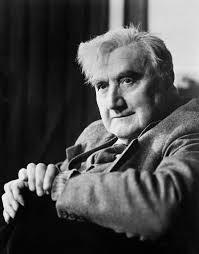You are here
Fanciful Folk Songs
Ralph Vaughan Williams was among the wave of European composers of the time who were interested in utilizing and recording folk music. Vaughan Williams found inspiration in English literature and traditional song, often quoting or imitating British folk tunes in his compositions. He was even a member of the English Folk Song Society, whose members sought to collect traditional music of the British Isles. Nine of these tunes found a place in the composer’s three-movement English Folk Song Suite, which was originally written for military band. The melodies were drawn from songs with such whimsical titles as Pretty Caroline, My Bonny Boy, and The Baffled Knight, whose lyrics recounted tales of love, sometimes unrequited, and tales of battle. This suite of folk songs would later be known as a “posy,” or “collection of musical wildflowers,” so-called by Vaughan Williams’ contemporary, Percy Grainger.
Grainger was also a member of the English Folk Song Society, and in addition to his interest in traditional music, was known for his strange personal habits, colorful prose, and dedication to advocating for the saxophone. The Australian came to the United States at the onset of World War I, and enlisted as an Army bandsman. This perhaps served as his inspiration for setting the British folk tune Shepherd’s Hey for band in 1918. While the tune itself is a Morris dance, a centuries-old dance tradition from England, Grainger insisted that it was not suitable for dancing. The composer did take some inspiration from the dance, however; just as the dancers join in and leave the dance group, various instruments take up the tune in solo parts.

Ralph Vaughan Williams